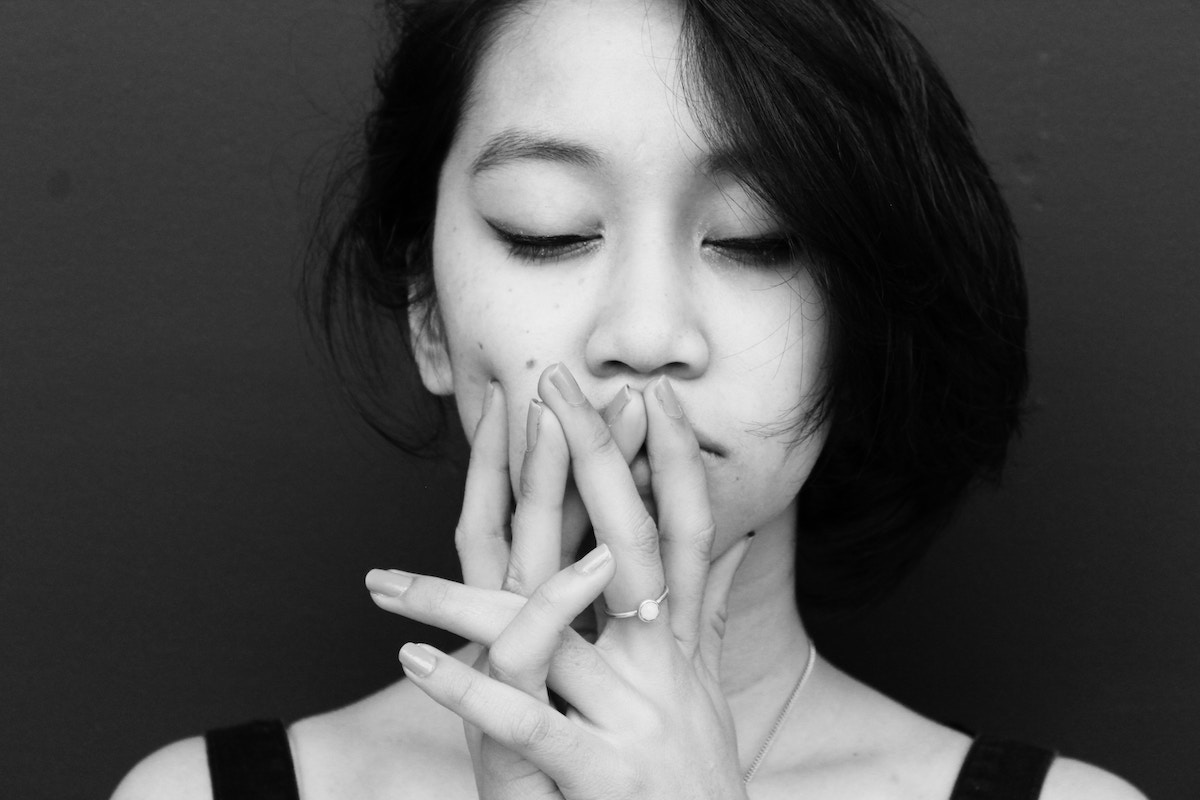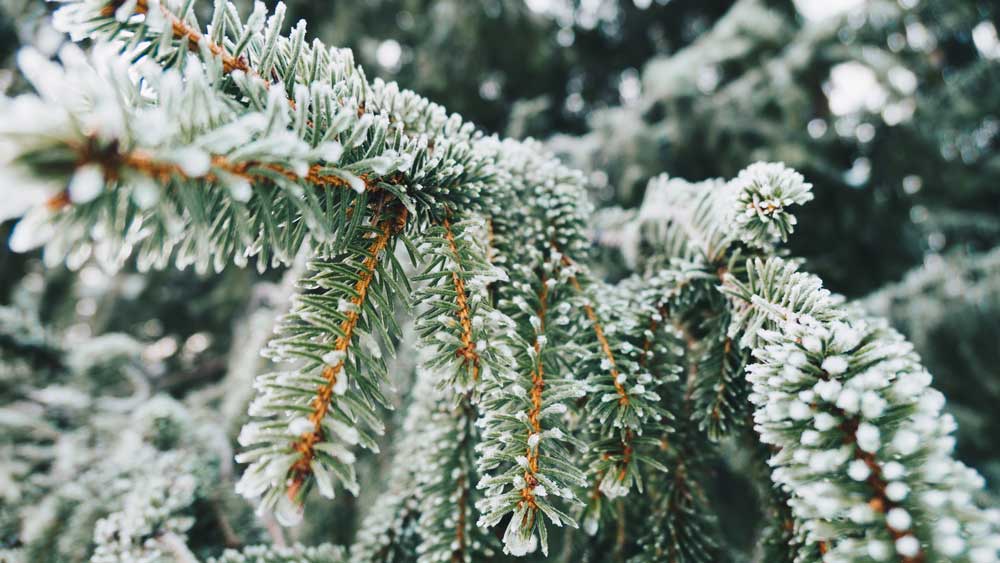- Sacred Lotus Acupuncture & Natural Health3515 Spring Street
Suite 7
Naugle Building
Davenport, Iowa 52807563-650-6747 -
Latest Articles:
- • Strategies to Stay Calm and Joyful During the Season •
- • How to Stay Mentally Resilient in the Colder Months •
- • Three Delicious and Healthy Soup Recipes to Keep Warm This Winter •
Health WellNews
The Liver: Mental & Emotional Aspects
According to Traditional Chinese Medicine (TCM), the organ connected to springtime is the liver. The liver is connected to the wood element, which refers to living and growing things like plants, trees and humans. In TCM, practitioners use the mental and emotional characteristics of the liver to diagnose and treat imbalances in their patients as well as its physical manifestations.

When the emotional aspects of the liver are working as they should, you are able to stand firm in your convictions, with proper boundaries between you and others around you. The liver influences confidence and assertiveness, and the ability to make decisions and stick by them. The liver also has a lot to do with stress and anger. Physically, an imbalanced liver can create tight tendons, necks and shoulders, and emotionally it can lead to a tightness of the spirit.
The key emotions of the liver are anger and frustration. So what would lopsided liver energy look like to a casual observer? Imagine this: a red-faced hypertensive man waiting impatiently in line at a store, huffing and puffing because he has to wait like everyone else. He is pointedly looking at his watch and glaring at the cashier. Every once in awhile he bumps into the woman in front of him as he checks his watch, and she moves back, submitting to him and allowing him to take over her personal space. He is becoming more and more furious by the minute, because he is late for his scheduled activities. Most people would describe this guy as controlling and overbearing, but in the world of acupuncture, his liver energy is simply out of sync.
When the liver isn’t doing its job, everything in the body tends to rise upward. In these types of patients, you can often see the physical manifestations of their emotional state. These patients might hold everything in their bodies in a tight, rigid manner. They often clench or grind their teeth in anger and frustration. Their faces might be suffused with color. That doesn’t mean all people who have a liver imbalance act this way, or that the liver is responsible for creating miserable “Type A” individuals. This liver energy is necessary for keeping us on track. Without it, we wouldn’t have a sense of purpose, and we wouldn’t be able to get anything done.
The key is balance. We could take another look at that line the angry man was in, and take into consideration the woman who was bumped into. Her imbalance of liver energy in the opposite direction creates a lack of boundaries, allowing her to have a “pushover” mentality. When someone steps into her personal space, she steps back. She lacks the assertiveness that a strong liver energy can bring forth.
When kept in a state of equilibrium, the liver can move us toward our goals, allowing us to plan and follow a steady course. It can keep us on track with our plans and ambitions, and protect us from those who want to cross our boundaries and take our energetic reserves.
What’s Inside Your Medicine Cabinet?
Springtime is a natural time for cleansing, whether in terms of cleansing the diet or clearing out the garage. In this article, we’ll offer some spring cleaning for your medicine cabinet: natural remedies to allow you to literally clear out old bottles and internally cleanse your body of synthetic medications.

We all have a medicine cabinet, drawer or cupboard in our homes filled with seemingly harmless over-the-counter drugs, bandage material and other toiletries. Unfortunately, many of the things in your medicine cabinet can be potentially dangerous and even lethal. The good news is, a lot of these items can be replaced with natural substitutes.
Painkillers / Anti-inflammatories
Painkillers like ibuprofen and naproxen can be effective for relieving a headache or reducing inflammation in the joints. But these medications were not designed to be taken on a long-term basis and here’s why: Long term usage of NSAIDS (non-steroidal anti-inflammatory drugs) has been proven to eat away at the lining of the gastrointestinal tract, which can then lead to ulcers. They also can increase the risk of heart attack, heart failure and stroke, even in people who have no existing heart conditions. So, when you have achy joints or a headache, reach for something more natural. Turmeric and/or ginger are wonderful natural substitutes that can be taken daily to help reduce the pain and inflammation associated with achy joints. For headaches, try a dab of peppermint or wintergreen essential oil on the temples. You can also try eating pineapple regularly. Pineapple contains an enzyme called bromelain. Bromelain is known to reduce inflammation.
Heartburn and Indigestion Medications
Many people suffer from heartburn and indigestion and then reach for proton-pump inhibitors (PPIs) like omeprazole or pantoprazole. These medications are proving to be more harmful than helpful, though. Numerous studies have linked long term use of PPIs to kidney failure and even dementia. But for those who suffer with heartburn, it’s a really tricky balancing act that ultimately comes down to what they eat. The pain can be excruciating. PPIs reduce stomach acid in the gastrointestinal tract, thus reducing pain. Over time though, users of PPIs can wean themselves off these sometimes harmful medications. Substitutes like aloe vera juice, organic apple cider vinegar, baking soda and cranberry juice can all help reduce excess stomach acid production naturally. Ginger and peppermint can soothe the pain associated with acid reflux, heartburn and indigestion.
Cough Syrup and Cold Medications
Even the healthiest of people will get sick at some point. Over-the-counter (OTC) cough and cold medicines are abundant and while some may work, they can come with some potentially harmful side effects. Dextromethorphan hydrobromide is a cough suppressant and promethazine is an antihistamine. Both are commonly found in OTC cold medications. These drugs can cause hives, difficulty breathing, facial swelling, dizziness, anxiety, restlessness and nausea, just to name a few of the side effects. There is also the potential for abuse if not taken properly. But again, there are natural substitutes that have no side effects and in many cases work more effectively. Honey not only helps with a cough, but it also soothes a sore throat. Pineapple juice is another great cough suppressant. Peppermint and thyme are also good for suppressing coughs and opening the sinuses.
When opening up that medicine cabinet, think about this: Nearly every OTC medication was once derived from a natural precursor. Aspirin, for instance, is derived from willow bark, and the main reason it is now produced in synthetic-pill form is that somebody saw an opportunity to make money. So before you pop a pill, consider seeking a natural remedy first. This includes things like traditional Chinese medicine. Acupuncture plus herbal formulas can be a wonderful alternative to those harmful medications. Also, don’t forget to evaluate your daily diet. Diet can play a big role in how your body heals. Making minor adjustments to your eating habits and adding acupuncture to your health regimen can alleviate stress, decrease pain and boost your immunity. Remember, you ultimately have the choice when it comes to your health and what you put in your body. Be sure to take the time to make informed decisions that aren’t detrimental.
How Weather Affects Pain
Almost everybody has heard one of their relatives complain about how painful their joints become when the weather changes, especially when it gets cold or rainy. But is there any validity to this claim? And what about people who live live in consistently cold, rainy or damp climates? Do they have the same complaints about body aches and pains? The short answer is both yes and no. There is some truth to this, but it might not be what you think.

Achy joints, arthritis flare ups and intense migraines are just some of the ways people can predict the weather coming. And while it may seem far-fetched, there is something going on there. Scientists have studied this, but even they can’t agree. There are however, several theories why weather affects pain. The most common theory is air pressure, or barometric pressure, is what is actually affecting pain levels.
Barometric pressure is the weight of the atmosphere that surrounds us. Just before a storm hits, barometric pressure drops. The lower air pressure allows the tissues to expand and this can lead to added pressure on the joints. This may increase pain in those areas.
Another theory is more psychological. It is well documented weather can affect a person’s mood. When a person feels gloomy or depressed, their perception of pain can be increased. This happens frequently in areas where winters are long and cold. It even has a name: Seasonal Affective Disorder or SAD.
One thing for certain is our bodies adjust to our environments. A recent study looked at people in four cities: Nashville, San Diego and two cities in Massachusetts. The study concluded people experience changes in their pain when the weather changed no matter where they lived. Pain worsened when the barometric pressure fell, which occurs right before a storm or drastic weather changes. And since our bodies adjust to our environment, it is safe to say no matter where a person lives, their pain will go with them. They may not notice it as much at first after moving to a new climate, but eventually it will come back.
The weather affects our bodies in other ways too. High levels of humidity can thicken the blood over time. This can increase the pressure in the blood vessels and the heart. This causes the heart to work harder to pump the blood throughout the body and may ultimately lead to a stroke or a heart attack. Those living in high humidity climates also have to worry about excessive sweating that can lead to dehydration. When the body is dehydrated, the joints ache more. This is why drinking water is so important, not just in high humidity areas, but everywhere.
Regardless of the cause, acupuncture and Traditional Chinese Medicine can be very helpful in the treatment of aches and pains. No matter where you live, Traditional Chinese Medicine can help.
5 Reasons to Try Acupuncture This Winter
Winter is one of the five seasons acknowledged by Traditional Chinese Medicine. The ancient Chinese followed the belief humans should live in harmony with the cycles of nature. During the winter months, darkness and cold indicate we should slow down, take care of our health, conserve our strength and replenish our energy for the upcoming spring and summer months.

Each season has multiple associations that help us adjust our habits as things change, which makes it easier to keep the body and mind balanced. Winter is ruled by the water element. The water element is associated with the kidneys and urinary bladder. According to Traditional Chinese Medicine philosophy, the kidneys are the source of all energy found within the body. This energy is what keeps us alive and allows our bodies to function properly. During the winter months, it’s vital we nourish and nurture our kidney energy.
Winter is typically a time when we decrease our daily activities. For many people, this coupled with longer hours of darkness, can lead to Seasonal Affective Disorder. This form of depression occurs during the winter months. It can be very debilitating for those who suffer from it. But acupuncture can help. Studies show regular acupuncture treatments can be as effective as prescription medications for treating depression and seasonal affective disorder.
The most common ailment that occurs during the winter months is the cold. The cold is a viral infection of the upper respiratory tract, nose and throat. Because we’re not as active during the winter months, our immunity tends to be lowered and this is when the cold viruses can attack. While colds usually have to run their course, acupuncture can help shorten the length of the cold and drastically decrease the symptoms.
Over the past decade or so, the norovirus has become more prevalent during the winter months. This particular virus causes gastroenteritis or gastrointestinal tract disorders like diarrhea. During the initial few days of a norovirus attack, people need to stay home and hydrate themselves. But once the diarrhea becomes less frequent, acupuncture can be very helpful in decreasing the symptoms and boosting the person’s immunity.
5 Ways to Help You Wake Up and Get Active
Everybody experiences times where they have no motivation. Lack of motivation can be caused by many things: the weather, depression, nutritional deficiencies, rejection and even not exercising. For many, this seems contradictory. If I have no motivation, how am I supposed to go exercise? Well, it all comes down to choices and doing what is best for your body.

Lacking motivation can be detrimental to your health. Even though everybody knows they should be exercising, eating right and getting proper sleep, many of us choose not to. This becomes a bad habit that can actually develop into depression, fatigue, insomnia and even nutritional deficiencies that cause worse physical problems. We tell ourselves we don’t have time or we have no motivation or willpower. These are just stories we tell ourselves. Everybody has time to care for themselves. It’s just a choice we have to make. So here are some ways to help us wake up, get motivated and get moving.
ACUPUNCTURE
Acupuncture can help put the pep in your step when it comes to motivation. In Traditional Chinese Medicine (TCM), lack of motivation is considered a sort of blockage along the energetic pathways that run throughout the body. Most commonly, this affects the gallbladder and liver pathways. Over time, this lack of motivation frequently develops into depression. When the body is depressed, nothing seems possible. But there are underlying causes to depression that begin with lack of motivation.
FENG SHUI
This ancient art is used to energetically balance the home through the placement of the furnishings inside. The bedroom is particularly important because we spend so much time there. Feng Shui tells us your bed should be placed where it allows you to see the door without being in the direct path of the door opening. This allows for a sense of security, which can lead to more restful sleep.
GRATITUDE
Being thankful for everything you have in your life really does make a difference. Instead of seeing the day ahead of you as a burden and worrying about everything you have to do, be thankful you woke up again. This will shift how you look at things throughout the day and the rest of your life.
EXERCISE
Whether you’re a gym rat or not, exercise is vitally important. Going for a walk or a jog first thing in the morning can be refreshing and get the blood pumping. Studies show regular exercise in the morning can actually lead to more energy the next day.
MEDITATE/PRAY
Meditation and prayer allow the body to relax and the mind to calm down. Using this tool shortly before going to bed can be very beneficial. And as we all know, when the mind is quiet, the body relaxes more and we get better, more restful sleep, which gives us more energy and motivation to tackle the next day.
Try incorporating one or all of these practices into your life and see how much it affects you. And remember, studies show it takes 21 to 30 days of doing something consistently for it to become a habit. Are you up for the challenge?

